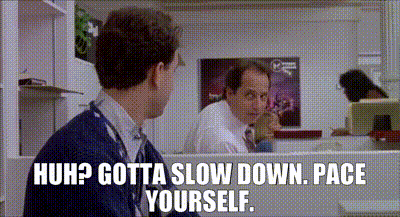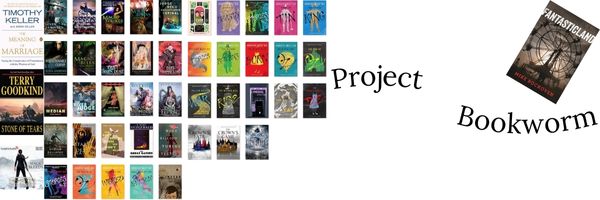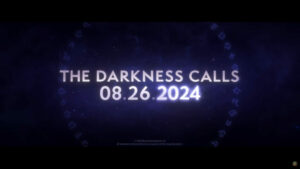Today, we start a new series: Hard. I’m going to dive into a number of topics about why writing, and life in general, is hard and how to deal with that. Today, we start with why pacing is hard.
Before that, though, I want to apologize for missing the last two blog weeks. I was on vacation and then sick and had my daughter’s 18th birthday so a lot has been going on. Oftentimes, I didn’t even touch my laptop in time to make a blog post happen. Thanks for sticking around while life is crazy. I’m going to do my best to stay on schedule.
Drawing from the Well
I FINALLY sat down and finished another chapter. Now there’s only one left until I can get back into my Overall editing notes. I’m getting excited about it. These interim chapters have done a lot to flesh out characters, the world, and give the story some breathing room. AND I’m trying to get back into a morning groove. I hope to have more good writing news next week.
Pages 327 (+3)
185,318 (+2,022) Words
Filling the Well
I’ve made some progress, but shockingly little these last few weeks. As I said in the opening, a lot has been going on. I’m back on it, though, and trying to catch up. These last few weeks, I only finished 3 books, two of which were Judge Dee short stories (which were great!). The other was Magic Strikes, Book 3 in the Kate Daniels series. I’m reading the next Kate Daniels and Judge Dee story, but I also started Fantasticland with a friend. That book is about the gruesome aftermath when society broke down after a once-in-a-century hurricane hit an unprepared area. It’s foreboding and scary because it could happen. I’m only a couple of chapters in, but I love it so far.
43/100 for #ProjectBookworm2024
The next World of Warcraft expansion, The War Within, launches on August 26. There’s lots of speculation about pre-patch, changes, and what’s coming when. I’m just excited for the next chapter. It’s good to be a WoW fan right now.
Well Chat
Pacing is hard.
It’s so easy for a reader, editor, or critic, to read your book and say that it moves too fast or feels too sluggish. Making the pacing feel right, though, is a whole other challenge. It’s also one I’ve been fighting in the current book. Let’s discuss this.
Pacing is how quickly or slowly things happen in your book. This sounds straightforward. It’s not. All of this goes to structure, both story and sentence.
For sentence structure, this is about how long your sentences are and how long the words within them are. Longer, more complicated words slow sentences down. Long, complex sentences slow paragraphs and pages down. The reverse is also true. Short, snappy sentences with trimmed sentences using mostly action words are going to feel fast. This helps control how the reader feels on a scene-to-scene level. If you’re in an action-packed scene, especially combat, you want quick bits of information. It makes it feel more exciting. If you’re writing a thoughtful scene, ponderous sentences make more sense.
What about story structure? What about plot pacing? The same holds true. To speak from clearer experience, Book III, my current WIP, is a large, complex story. There are five different story arcs happening simultaneously. This was a lot to wrangle. To make sure I hit all the relevant story points, I focused the structure on that. It wasn’t until I got to editing that I realized what I had missed: the meat in between. See, there’s more to plot than the big moments. What makes a story feel real, lived, and believable is the reactionary, thoughtful moments between the big moments. Would the Battle of Helm’s Deep have felt as hard-fought without Theoden’s struggles, especially overcoming them, after being freed from Wormtongue? Would Luke’s Force senses have felt earned without Dagobah? Would Daenerys, Mother of Dragons, been as epic without the Dothraki? The answer to all of these is no. The thoughtful moments are where characters grow. The big moments are where they show it. You can’t have one without the other.
This is important because it is easy to shorten or skip over the thoughtful moments. People’s reactions to things can seem dull, but they’re vital. That’s where we all have our realizations about life. Without that, the believability of your story evaporates. Pacing problems come in when these scenes aren’t valued and given the same weight as critical story points. You can’t jump from your Inciting Incident straight to your Midpoint. You can’t even ignore the First Pinch Point between them, but you need pages between both to give your characters time to react, think, and decide what to do next. And this is pages, not sentences. It takes time to make that happen.
All of this is why pacing is hard. The big story points are exciting. Short paragraphs are easier to write (mostly). We WANT those moments, the things Susan Dennard calls Magical Cookies. You can write them early, but you have to make sure that your character earns them too. Likewise, you don’t want those moments to be too frequent or too long. If you do that, you end up with a ponderous story overall. There’s a balance. You find the balance in editing, which is exactly what I’m doing now. I write scenes that seem necessary, but after that, I’ll need to step back and look at the story on balance. Are the eighths about equivalent? Is something too short or too long? Is that acceptable (my first eighth in Book III will be a little long for… reasons)? Answering all these questions is the heart of editing.
I hope this was a helpful look at editing. Next week, we’ll talk about calendars, both in the real world and in your fiction. Have a great week!
May the tide carry you to safer shores.
BSG








